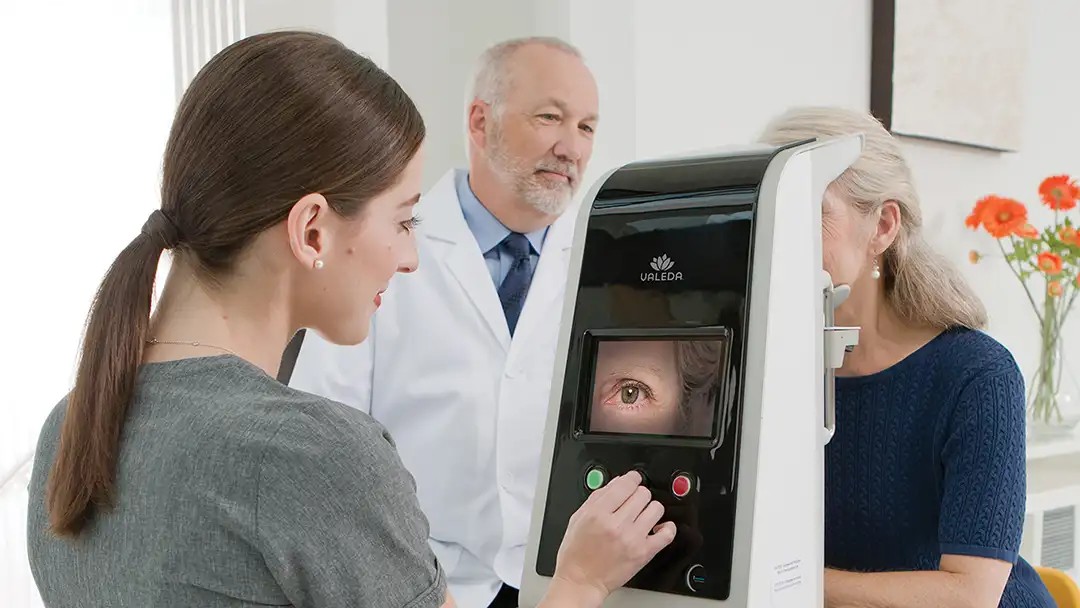
Macular degeneration is caused by several genetic and environmental factors. People with an affected parent have approximately twice the risk of getting the disease than someone whose parents do not have macular degeneration. Learn about the genes that increase the risk of macular degeneration, and whether genetic testing is recommended.
Recent advances in gene sequencing and mutation-detecting technology have identified sequence changes in at least 19 genes that can increase someone’s risk.
Two Genes Stand Out
Two genes increase the risk of macular degeneration more than any of the others. These are called complement and ARMS2/HTRA.
Complement is an arm of the immune system that attacks invading bacteria. It is a series of proteins that recognize the bacteria as foreign, then initiate a cascade of events that pokes holes in bacterial membranes and recruits white blood cells to kill them. Complement can sometimes inappropriately target our own cells, including those in the retina. Among the complement genes, complement factor H confers the greatest macular degeneration risk.
Not only is complement genetically associated with macular degeneration, it also has been shown to be activated in the retinas of people with macular degeneration. The activated proteins were found near the cells that are damaged in macular degeneration, within deposits called drusen. This has led researchers and pharmaceutical companies to develop complement inhibitors to treat or prevent macular degeneration. In one phase II trial, a drug called lampalizumab, injected into the eyes of people with the advanced dry form of macular degeneration called geographic atrophy, appeared to protect the retina by slowing the growth of atrophy. Unfortunately, the phase III clinical trials with Lampalizumab failed to slow the rate of expansion of geographic atrophy.
Another complement inhibitor made by Apellis, which inhibits a different complement protein called C3, recently showed promising results in a Phase III trial and is currently being reviewed by the FDA as potential treatment for geographic atrophy.
While ARMS2/HTRA is the subject of intensive research, the role of these genes in macular degeneration is not yet understood. Other genes that confer macular degeneration risk include those involved in cholesterol metabolism, collagen production, and cell signaling. Similarly, the research on these genes is not as advanced as it is for complement.
Genetic Testing
Genetic testing is now available to assess some of the macular degeneration risk genes. Once the information from this testing is shown to affect the choice of macular degeneration treatment, it could be helpful to undergo the testing.
However, there are no studies firmly demonstrating that genetic testing should influence macular degeneration treatment selection. Anyone with a family history of macular degeneration should see an ophthalmologist and try to eat a diet rich in fruits and vegetables, fatty fish twice a week (salmon, tuna, sardines, mackerel), avoid red meat, and not smoke.
The Future
As DNA sequencing technology becomes cheaper and faster (currently the whole genome can be sequenced in a few days for $1000!), and information about the meaning of DNA sequence changes is advanced, it is likely that genetic testing will be more practical and helpful in guiding treatments for macular degeneration and a growing list of other diseases.
About BrightFocus Foundation
BrightFocus Foundation is a premier global nonprofit funder of research to defeat Alzheimer’s, macular degeneration, and glaucoma. Since its inception more than 50 years ago, BrightFocus and its flagship research programs—Alzheimer’s Disease Research, Macular Degeneration Research, and National Glaucoma Research—has awarded more than $300 million in research grants to scientists around the world, catalyzing thousands of scientific breakthroughs, life-enhancing treatments, and diagnostic tools. We also share the latest research findings, expert information, and resources to empower the millions impacted by these devastating diseases. Learn more at brightfocus.org.
Disclaimer: The information provided here is a public service of BrightFocus Foundation and is not intended to constitute medical advice. Please consult your physician for personalized medical, dietary, and/or exercise advice. Any medications or supplements should only be taken under medical supervision. BrightFocus Foundation does not endorse any medical products or therapies.
- Dry AMD
- Genetics
- Risk Factors
- Wet AMD









